
No Easy Way to Success: Pride and Perseverance Come from Hard Work
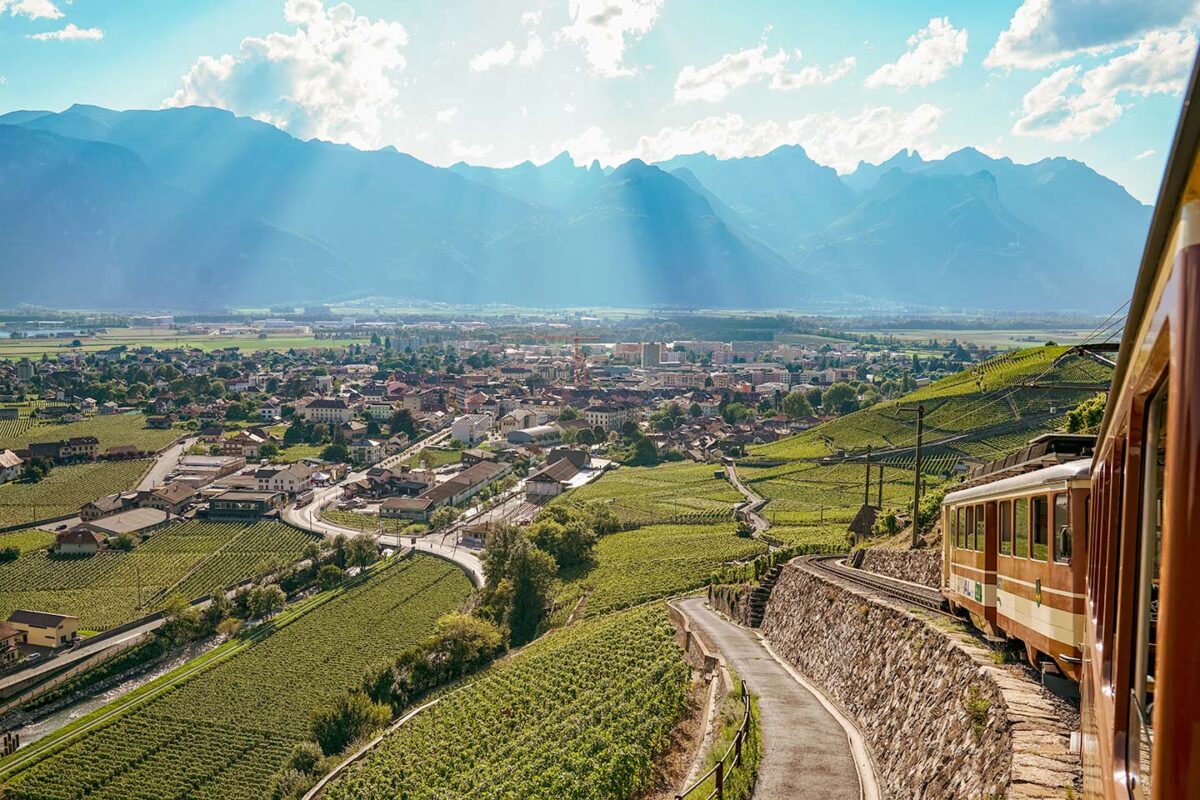
Leysin, western Switzerland, has a population of about 3,500. At an altitude of some 1,200 meters, the city commands a splendid view of the Alps mountains. It is a popular ski resort, attracting vacation-goers year-around. Leysin is also home to some international schools that offer quality education to children from around the globe. In a corner of this bustling city stands HORIZONTE COFFEE ROASTERS, founded by Christoph Sauser, a Swiss local.
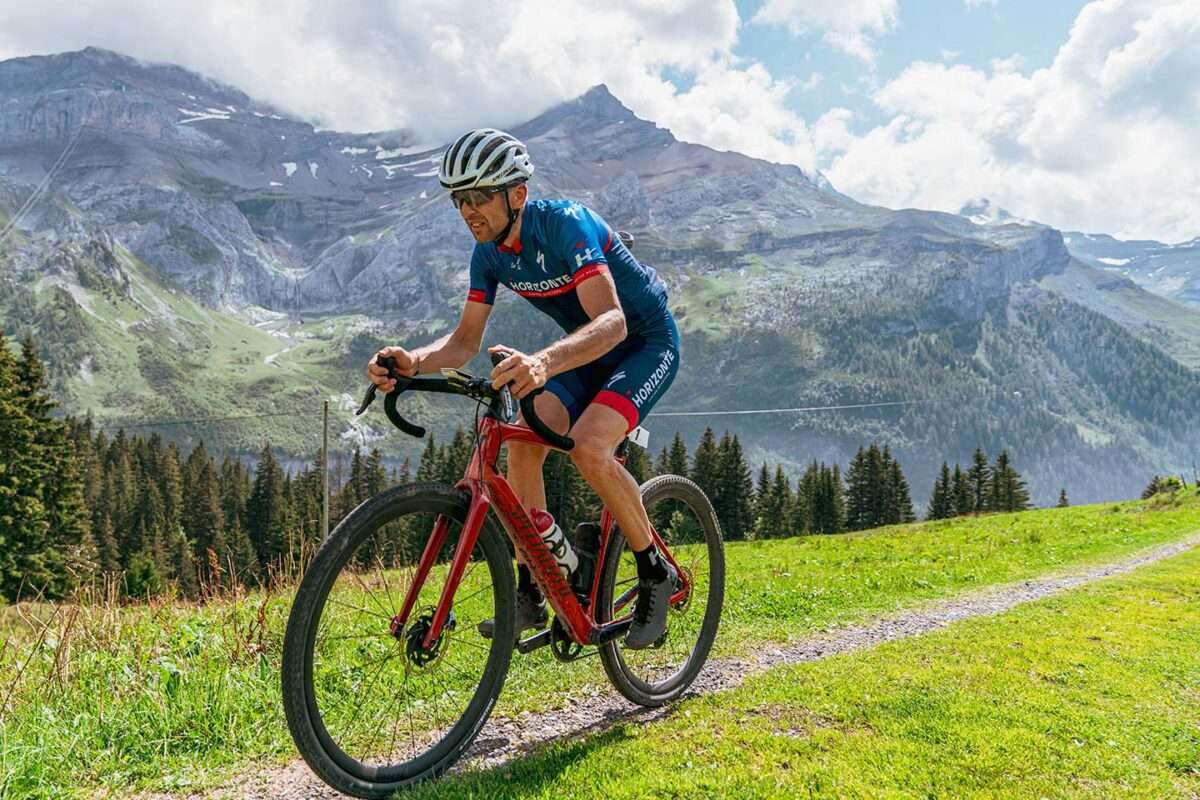
A former professional cyclist, Christoph has an around 20-year competitive career. After retiring from professional races, he decided to veer off the beaten path and ride into unfamiliar terrain. Since he established HORIZONTE in 2018, he has pursued steady and healthy growth, with an equal emphasis on keeping it fair for all those involved.
A self-described perfectionist who likes to keep things black and white, Christoph has a dazzling resume of athletic accomplishments, being an Olympic bronze medalist and four-time world champion. Now in the world of coffee, where not everything can be black and white, he is racing toward another goal in his new journey.
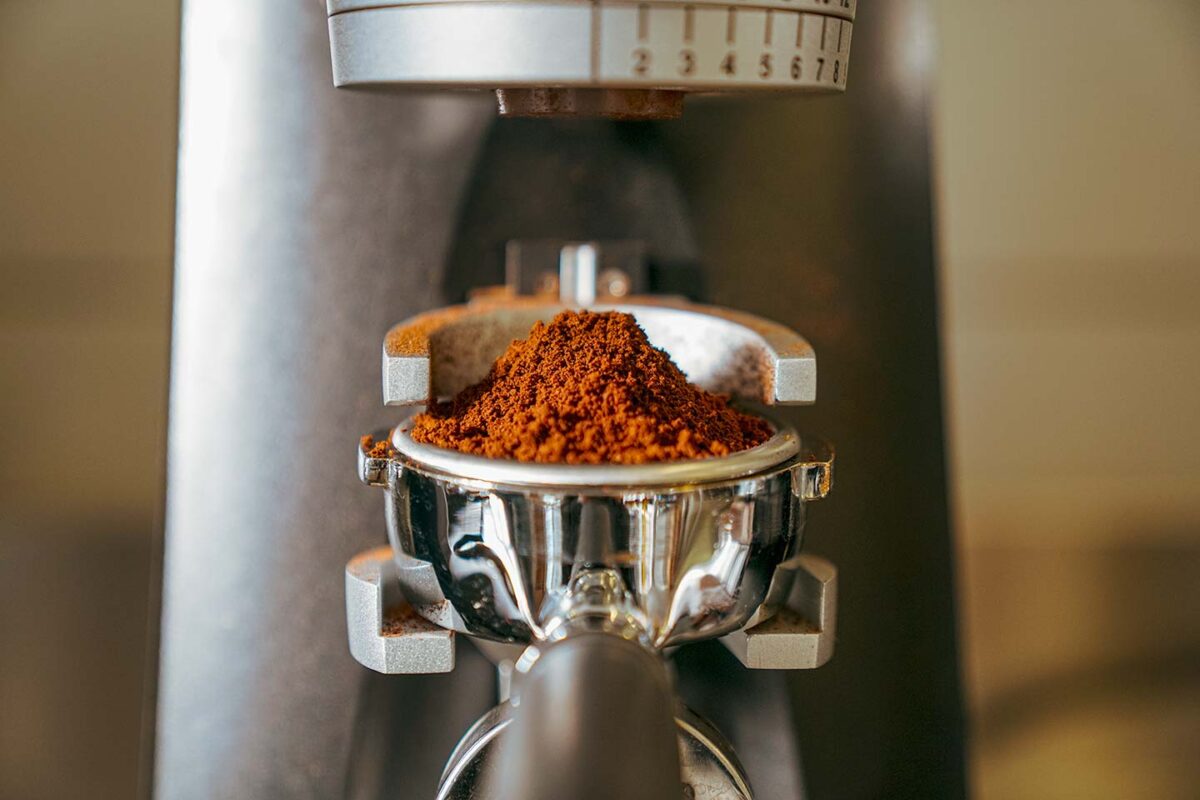
Pride comes from hard work
“Give a man a fish, and you feed him for a meal. Teach him how to fish, you feed him for a lifetime” is the common refrain among those helping people in need. Giving water, food, clothing, or school materials to the needy can only tide them over for a short-term. You must also provide knowledge and skills so that they learn how to get things and solve problems themselves.
There are a myriad of ways you can help the poor, be it donations, charity, volunteering, or fair trade. But unless you help them to become independent, any assistance won’t be sustainable. It is with that mindset that Christoph founded the non-profit “songo.info” in 2008, aimed at providing South African children access to educational and sports programs.
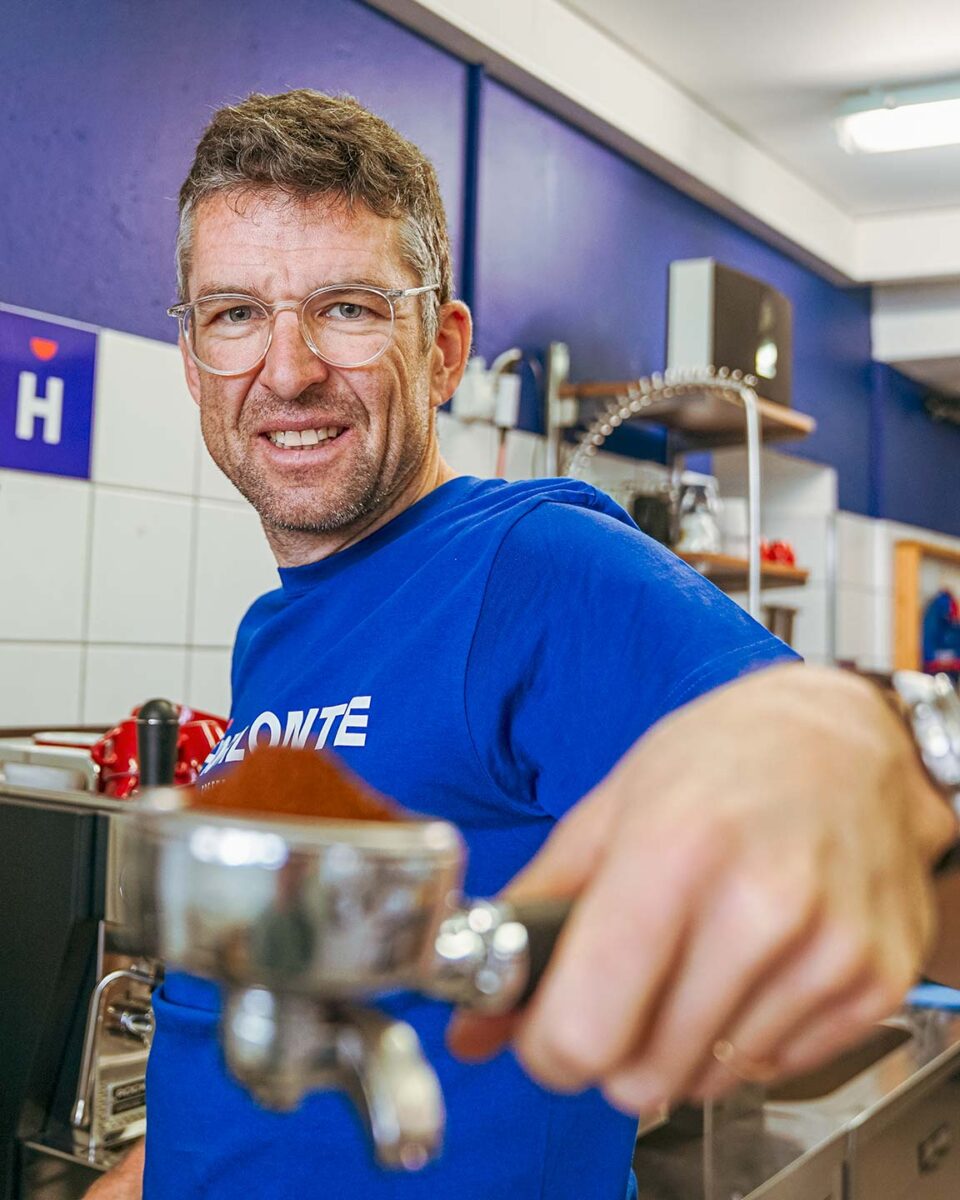
“We don’t just give away competition-grade bicycles or food. We also teach children how to behave politely and follow certain rules. We tell them to clean up their clubhouse, maintain their bicycles, and renovate buildings themselves. That’s part of the training. Otherwise, they will be lazy and expect to get help whenever they need it.
The same thing could happen with coffee producers. If I decide to buy their coffee regardless of its quality just because they are poor, they will lose the incentive to work hard. What’s important is to pay a price their product deserves and keep it fair. At the end of the day, that will create a longer-lasting relationship and they will have more pride in what they do.”
Giving people aid can sometimes lead them to rely too heavily on it. Aware of this pitfall, Christoph not just purchases coffee from producers, but he also invests in them. Some of his partner producers used to carry coffee cherries to a washing station one kilometer away. Having heard that, Christoph funded the construction of a washing station near their farms. But he split the investment at an equal ratio of 1:1:1 among the producers, an exporter, and himself. Under this arrangement, the producers have developed a sense of responsibility and ownership.
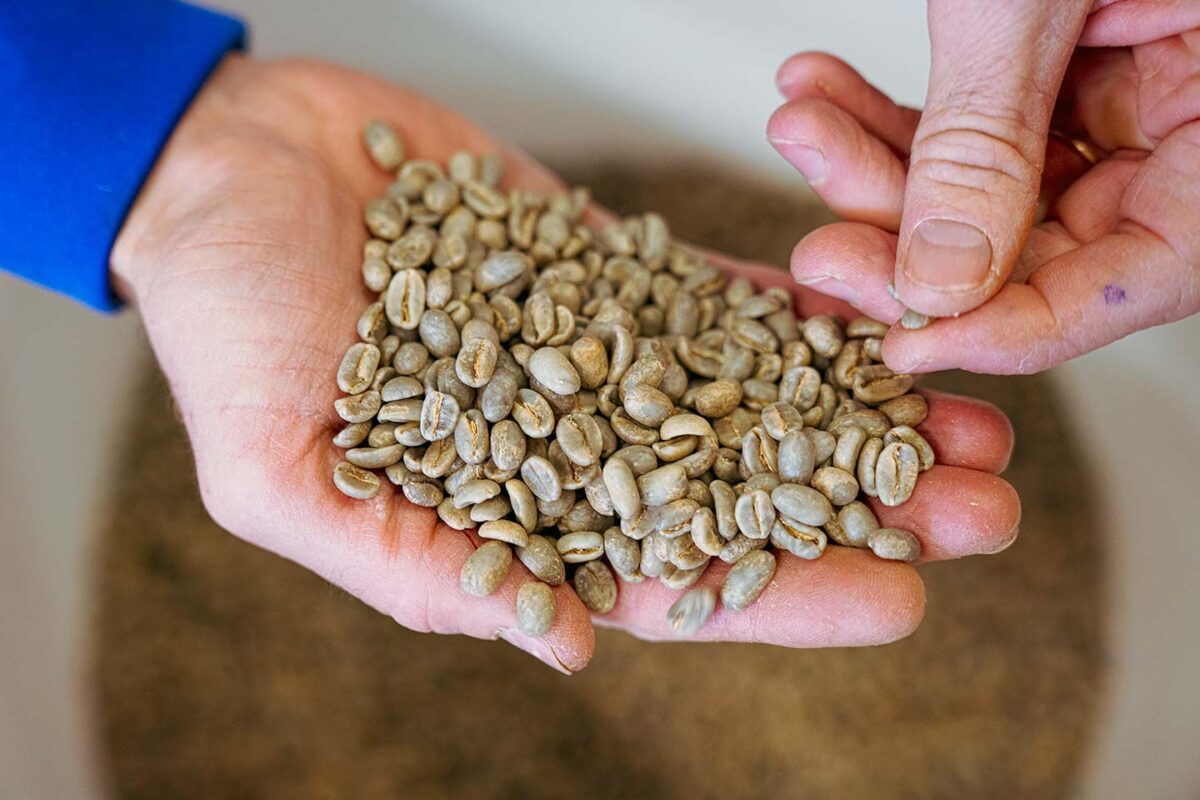
To establish a win-win relationship, one thing he does is to give producers the assurances that he will buy a large chunk of their harvest, as long as it meets a certain quality standard. This way, the producers can plan their next production cycle with certainty and a sense of security.
“It’s more rewarding to make an impact on someone. We are lucky to live a fulfilling lifestyle in Switzerland. It’s wonderful if we can give back to someone else who is less fortunate.”

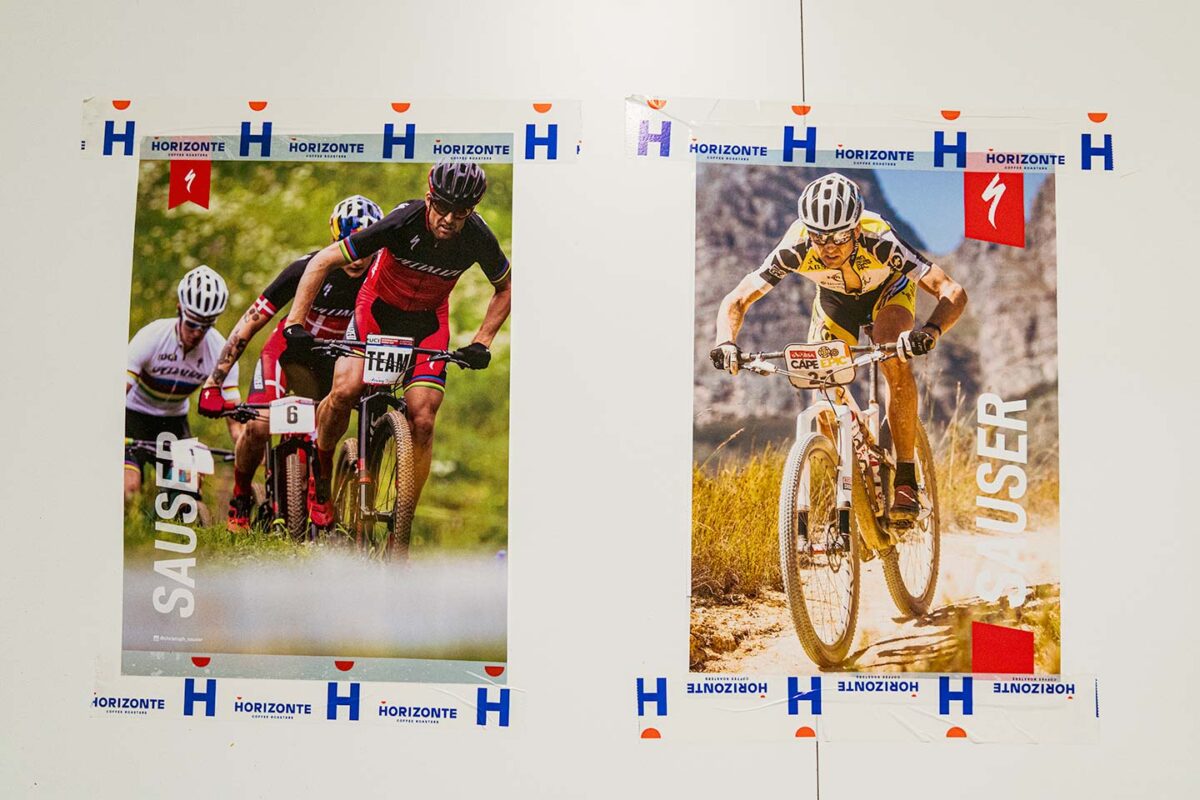
Going out of comfort zone
For about 20 years, Christoph was at the forefront of professional cycling. Now running a coffee roastery, he is in the second chapter of his career.
Being a decorated athlete of Olympic and World Cup caliber, Christoph could very well have stayed in the cycling world and made a good living for life. In fact, the global cycling brand SPECIALIZED offered him a marketing position and managerial role. Christoph was very honored, but listening to his heart, he realized he wanted to get out of his comfort zone and try something completely new.
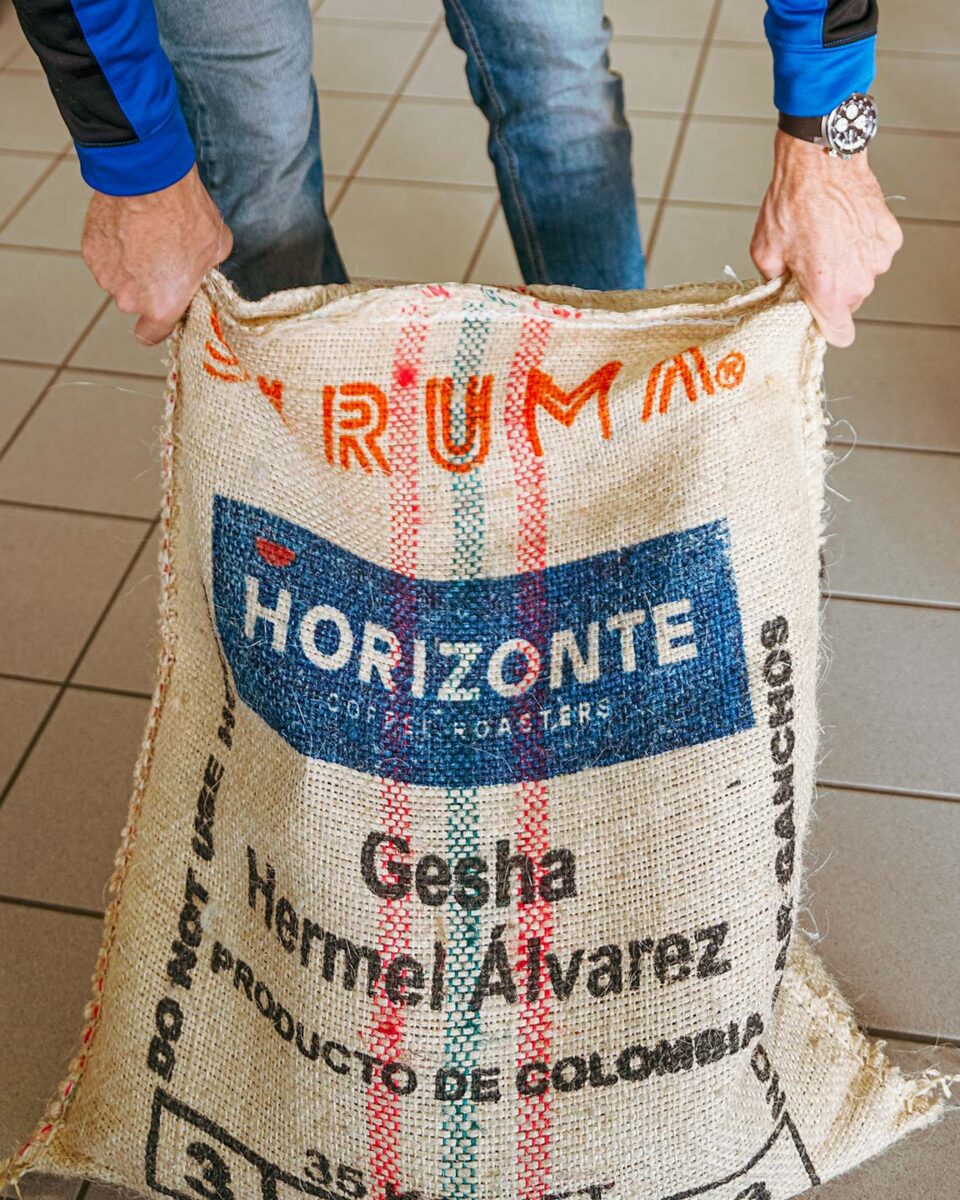
His journey into the world of coffee started after he met Valentina Duque, a Colombian coffee producer. Currently, about 70% of the coffee he roasts at HORIZONTE comes from her export company, “Siruma.”
Valentina is the fifth generation of a coffee producing family. When Christoph met her for the first time, she was just about to launch an exporting firm while working a day job. Valentina is well-connected with small-scale producers who grow high-quality coffee. It was during this trip to Colombia when he had the most delicious coffee in his life.
“She is a smart, reliable and hearty business person. I knew right away that she is 100% committed to what she wants to do. I felt like we could do something special together.”
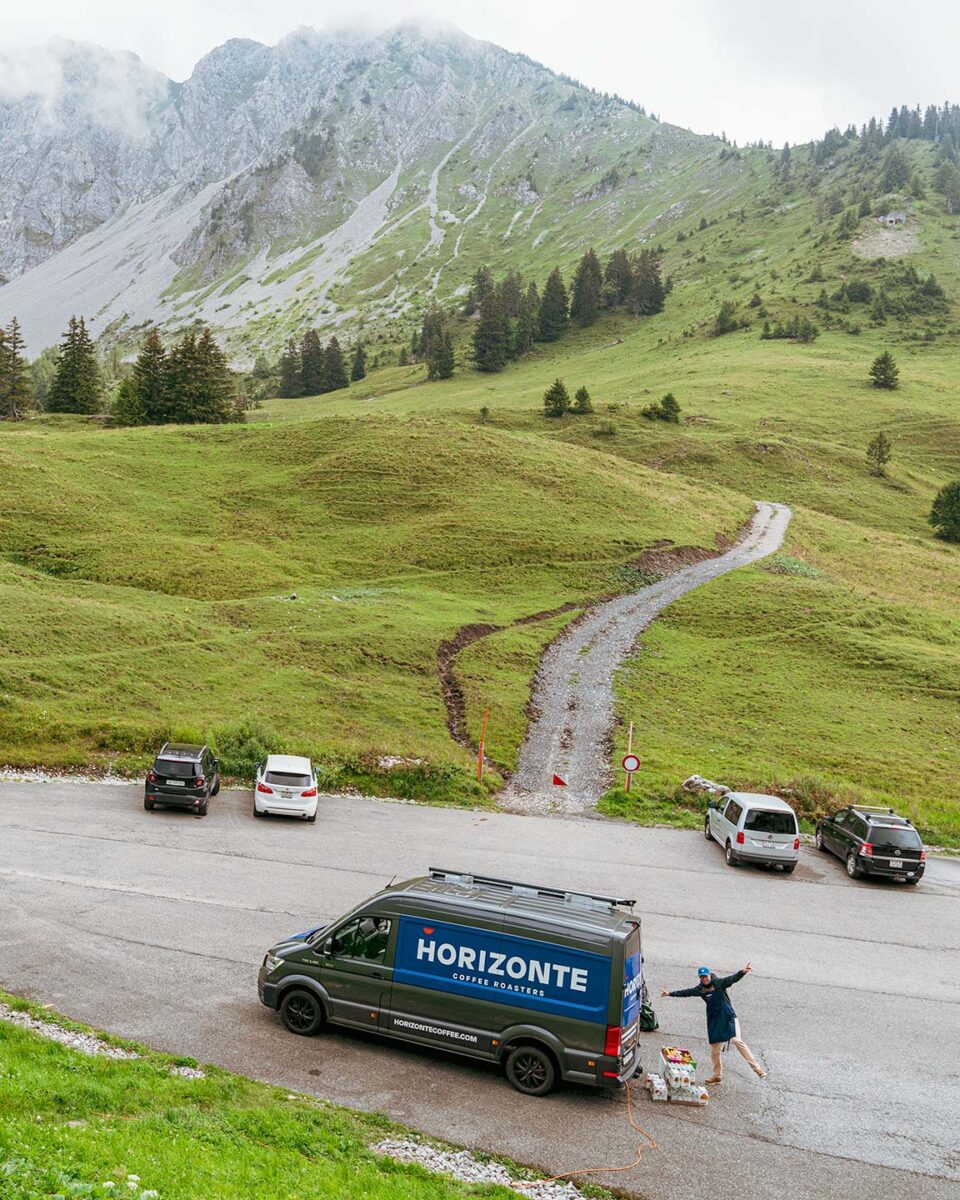
Christoph was already a coffee lover even before his trip to Colombia. He knew that coffee could be more than just a black, bitter drink. But it’d never crossed his mind to make it his job. At this point, he was over 40 years old, and had no experience in the industry. Any other person would have hesitated to make a career change. But Christoph was different. “I would be bored if I didn’t have any pressure at all,” says Christoph, recalling the moment he decided to dive into the world of coffee.
“Before I started my venture, I visited many roasteries and saw how they operated. I wanted to prepare as much as I could. That said, once you get a roasting machine, the rest is up to you. You can’t copy and paste roasting profiles someone else designed because even if you use the same machine, there are many variables like environmental factors and bean conditions. So you have to figure out what works best for you to serve your customers’ needs.
If I’m honest, I was a little too optimistic about business. I was like, ‘If I put in the hard work, everything will go well soon.’ But someone told me things wouldn’t be that simple, and that I needed to get close to individual customers. That’s why I started a mobile coffee van.”
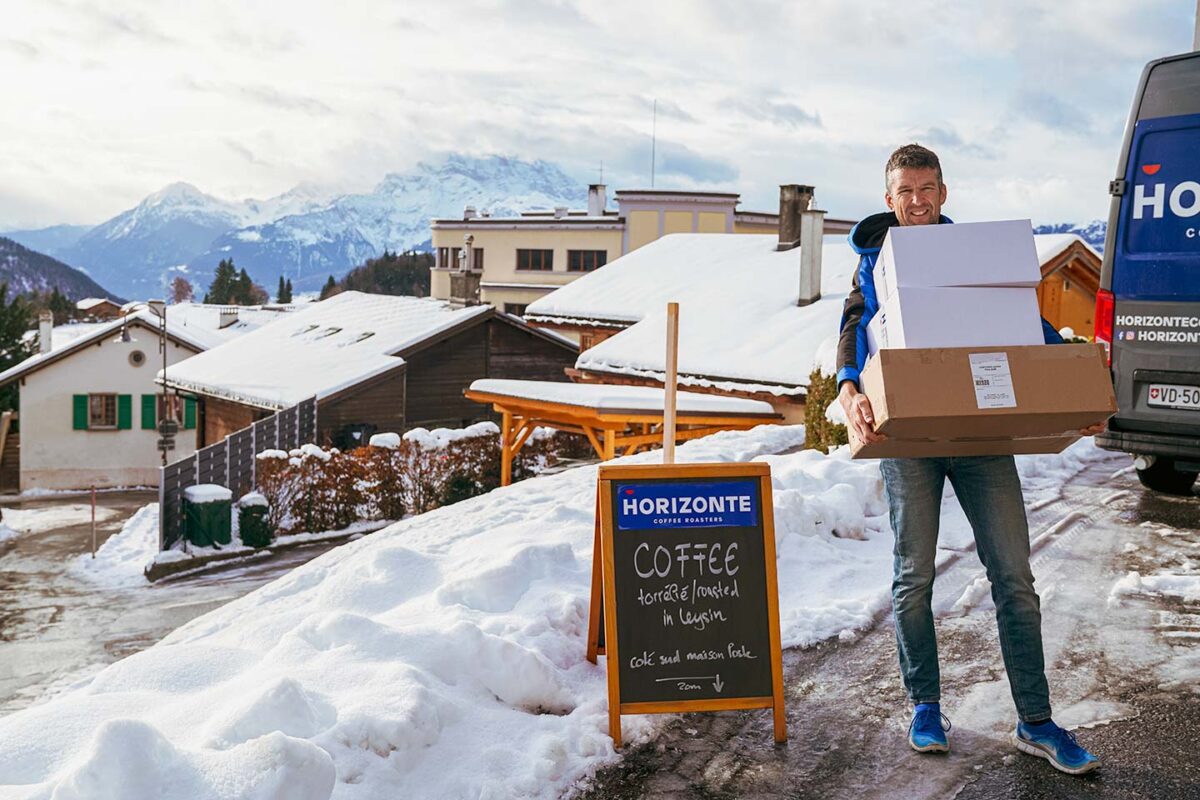
Aside from employing one barista, Christoph handles all aspects of the business by himself, from marketing and sales to the coffee van to accounting. Now he is renovating a vacant property to open a coffee restaurant. Although he will help to finance the operations, a friend will run the daily business of the establishment.
“Every day looks different. I like the variety in my working style. If you are stuck in only one aspect of the business, you can never see the bigger picture.
It’ll probably take me another few years until I can support my family with an income from the roastery alone. But I consider myself lucky in the sense that I am under no financial pressure. I don’t have to go after immediate profit, which means I can grow the business in a healthy way for myself, and for the coffee producers, too.”

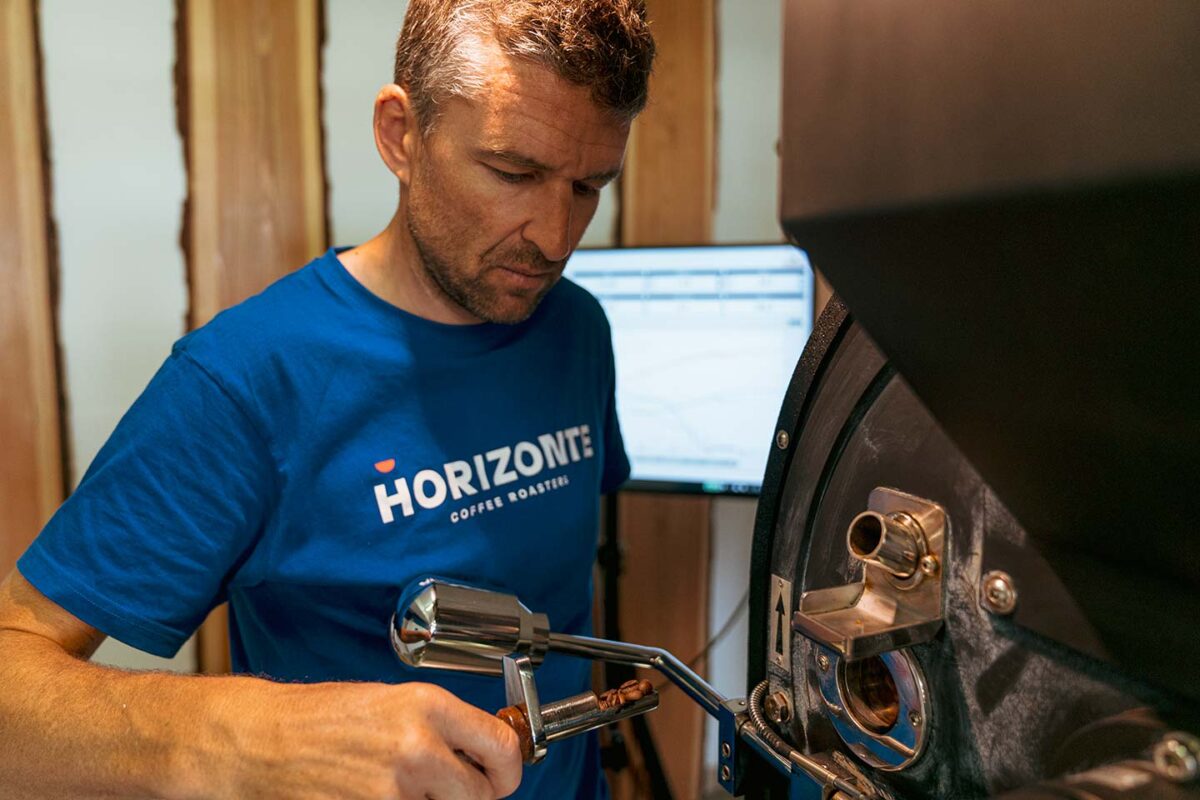
Earning is worth more than receiving
Competing in cycling and running a roastery may seem to have little to do with each other. After all, you need different skill sets, knowledge, and training to achieve the results you desire. But Christoph says that whatever the endeavor, there is a common mindset that’s essential for success.
“I made a lot of mistakes as a cyclist. But those mistakes are exactly what helped me grow because the lessons you learn the hard way tend to stick in your head. On the other hand, I’ve seen some cyclists who rode high-grade bicycles and had a coach from a young age. Those athletes would follow a meticulous protocol someone else laid out for them – training regimens, day-to-day routines, everything. And then they would turn professional early. Too early I might even say, because by the time they grow up, they have no room for improvement anymore.
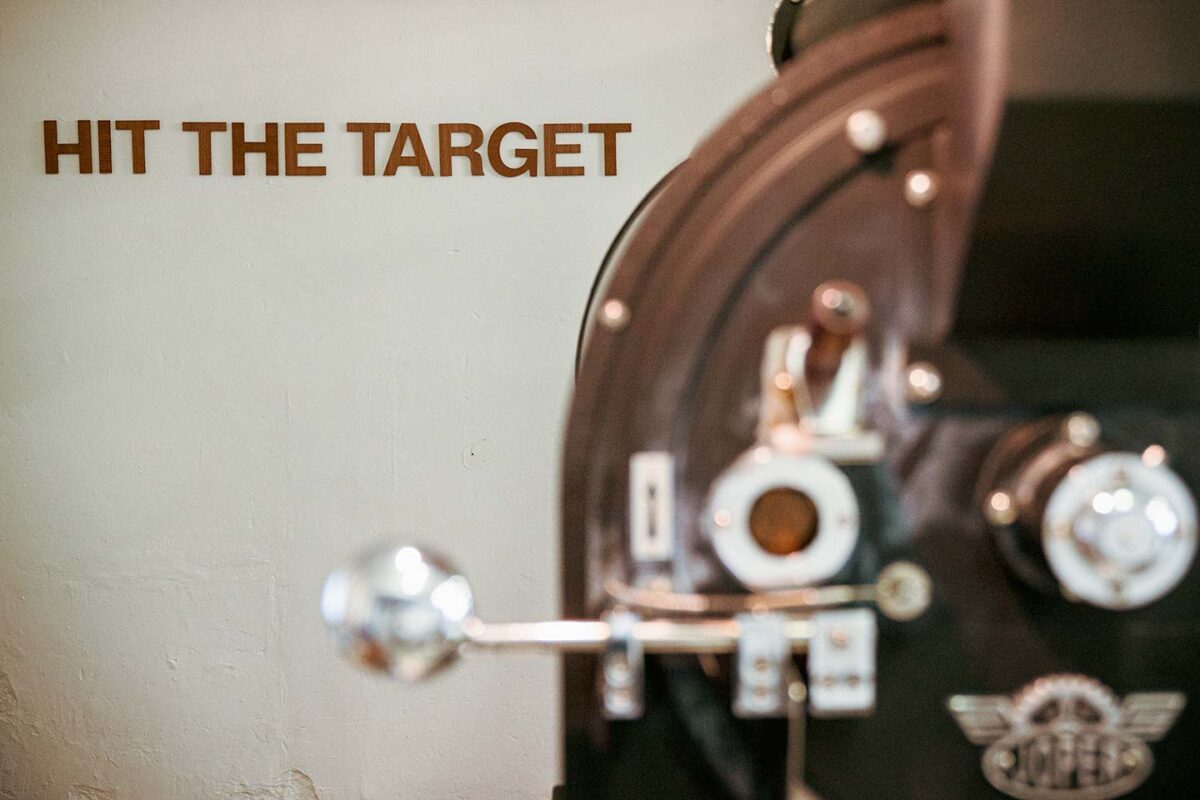
I didn’t have any coach except for the last four years of my career. Up until then, I drew up training plans myself. I’m not saying you don’t need a coach or a trainer. In fact, I was able to improve thanks to my coach.
But the point is, you have to think with your own head. Same with business. Sure, there is more at stake in business than in sports. But still, you have to figure out what you need to do to increase your presence and improve customer satisfaction. If someone teaches you everything from A to Z, you never quite fully understand it, or you don’t know what to do when you run into an obstacle.
Then if you do a good job, you have more money in your bank account at the end of a month, and more funds for investment. That’s visible proof of your improvement. You get motivated by these tangible achievements. Making it to the podium was my motivation when I was an athlete. Now as a roaster, making my customers happy is.
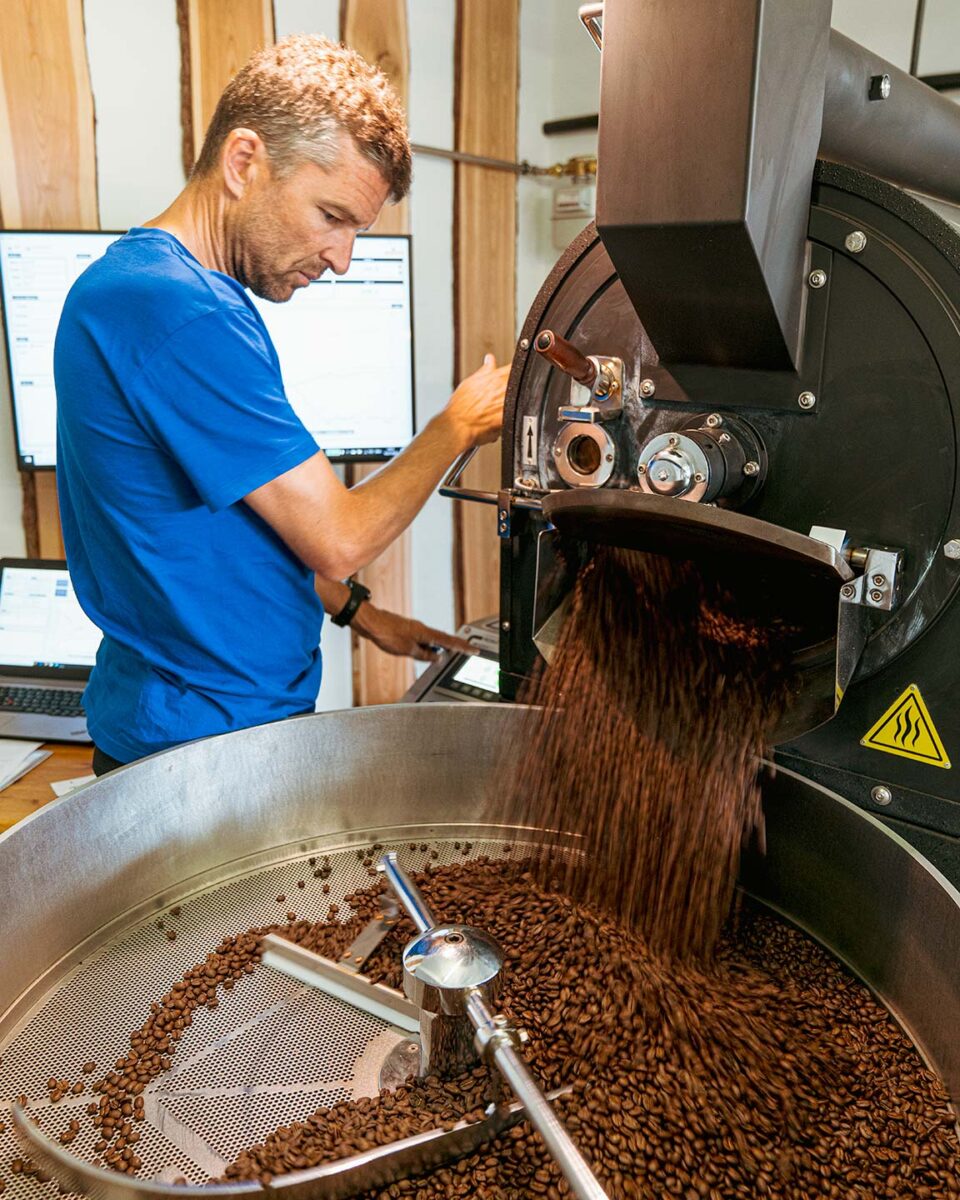
I always set mid-term goals because I don’t like it when it takes too long to be rewarded for my effort. For instance, if I go for a long ride, I set my targets incrementally, like, over that hill first, then through this valley next, and so on. I do the same thing with the roastery because I can’t possibly build up to roasting 10 tons in my first year.
If you work hard to get things, you try to hold on to them. And the things you earn with hard work are worth so much more than the things you get for free. It’s this effort that gives you the power to persevere and persist through hardship.
But if you are used to having everything handed to you, you might quit when things get tough. In the world of cycling, some children start out with a perfect record, coasting to win after win without facing much adversity. But then they hit a rough patch, start to get defeated, and lose their motivation. And they eventually leave the sport altogether. To me, this shows that giving everything isn’t always beneficial when you consider the person’s long-term growth.”

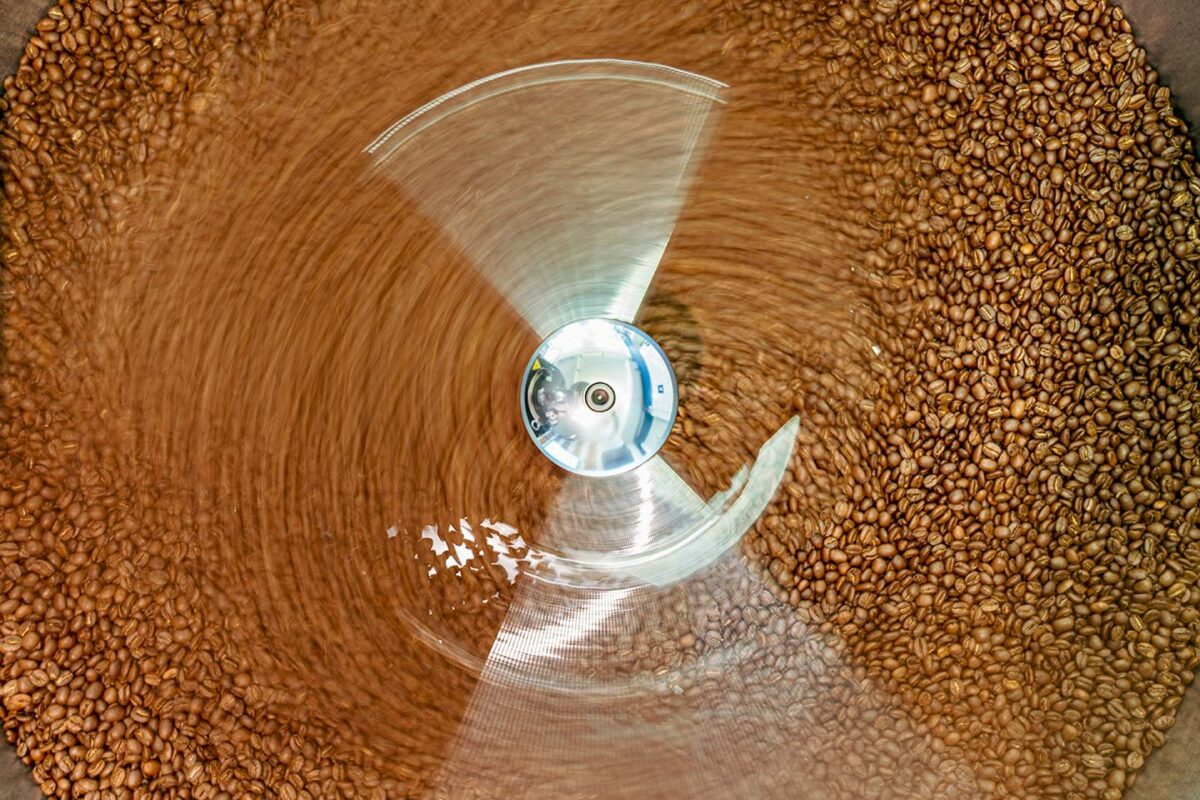
Embracing “imperfection”
Christoph has lived by the motto of either going all in, or not doing it at all. Seeking perfection is a quality he was born with.
When he was a child, his mother would tell him to clean up a parking lot littered with leaves. At first, he didn’t understand the point; in 30 minutes, there would be another pile of leaves all over again. But once he started sweeping the leaves, he couldn’t bear the sight of a single leaf left on the ground. Every time the wind blew some leaves off the trees and onto the parking lot, he couldn’t help but go out and keep the ground as immaculate as he’d made it minutes earlier.
It is this perfectionism that drew him into competitive cycling and then elevated him to an extraordinary height.
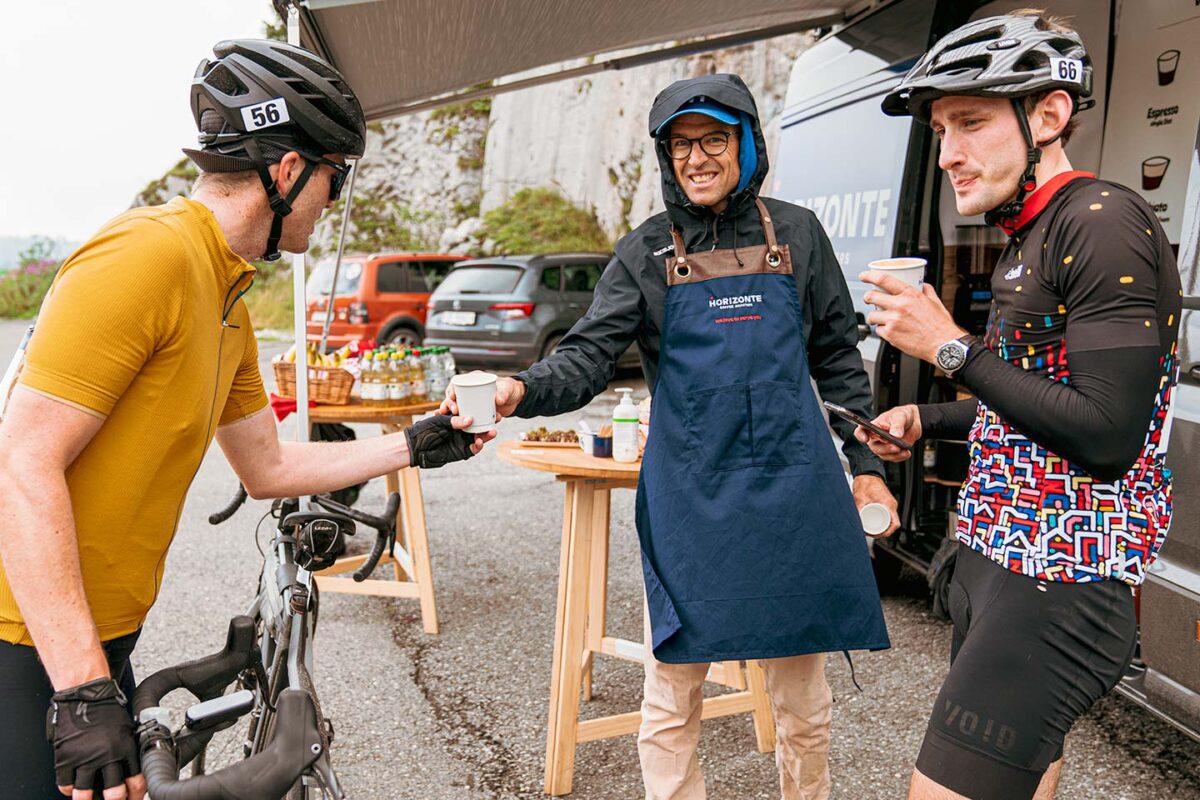
But he says being a perfectionist has its downsides in his current job. “I need to be open minded when cupping because other roasters may have completely different views from me. I shouldn’t impose my opinion and be like, ‘This is the only right way.’ Instead, I should be humble and share what I think is good and give my recommendations.
In sports, great performance leads directly to good results. But that’s not always the case in the world of specialty coffee. No matter how well you roast the beans, your customers may not like them at all. My customers are my boss. It is up to them to decide whether they buy a coffee or not, regardless of its background or quality.”
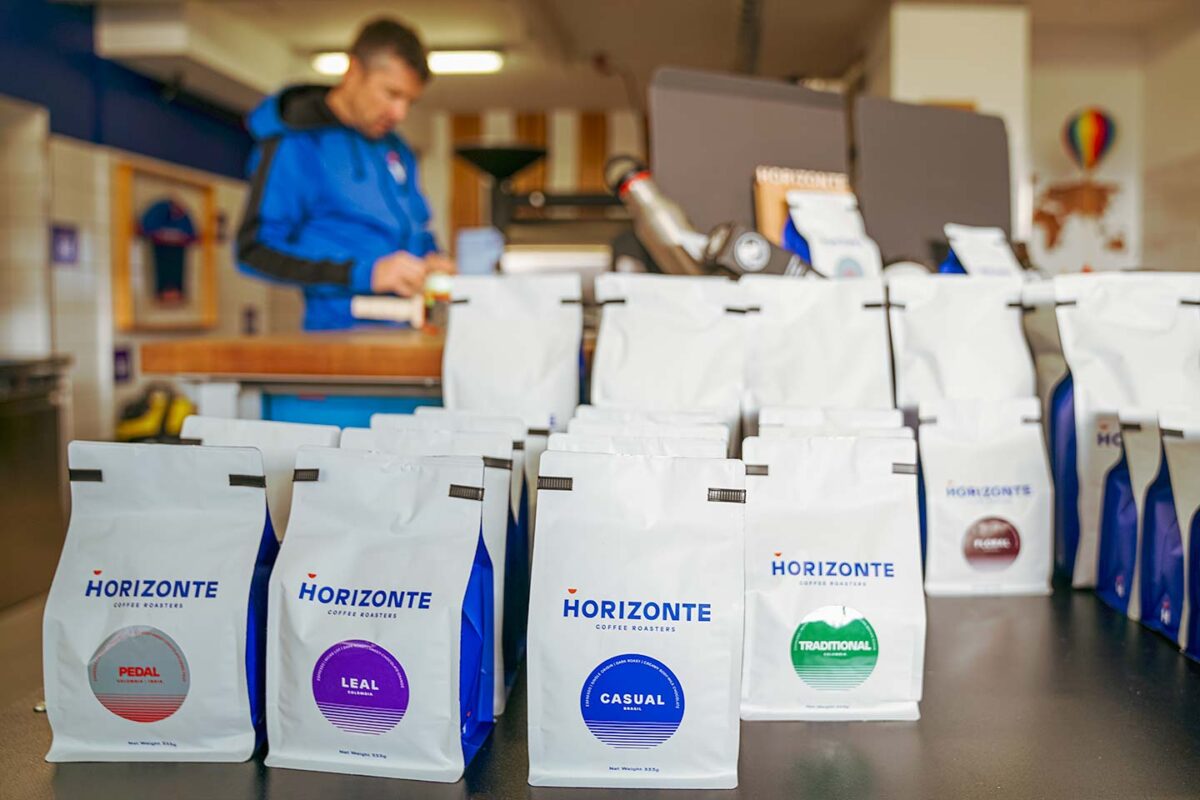
Embracing “imperfection” is something he learned from living in Switzerland. The country is a multilingual nation with four official languages – German, French, Italian, and Rumantsh. Christoh, a Swiss of German heritage who lives in a French-speaking region, uses his mother tongue German and English for his website and product packaging.
“Shoppers on my e-commerce site consist of 50% German-speaking and 50% French-speaking. So ideally, the website should have a French version. But that would make the work and design too complicated, and there’d be additional expenses for translation. Things could be much easier if I was in the UK because I could use English only. But this is Switzerland, so I have to accept that. Plus, having diverse cultures can be a strength.”
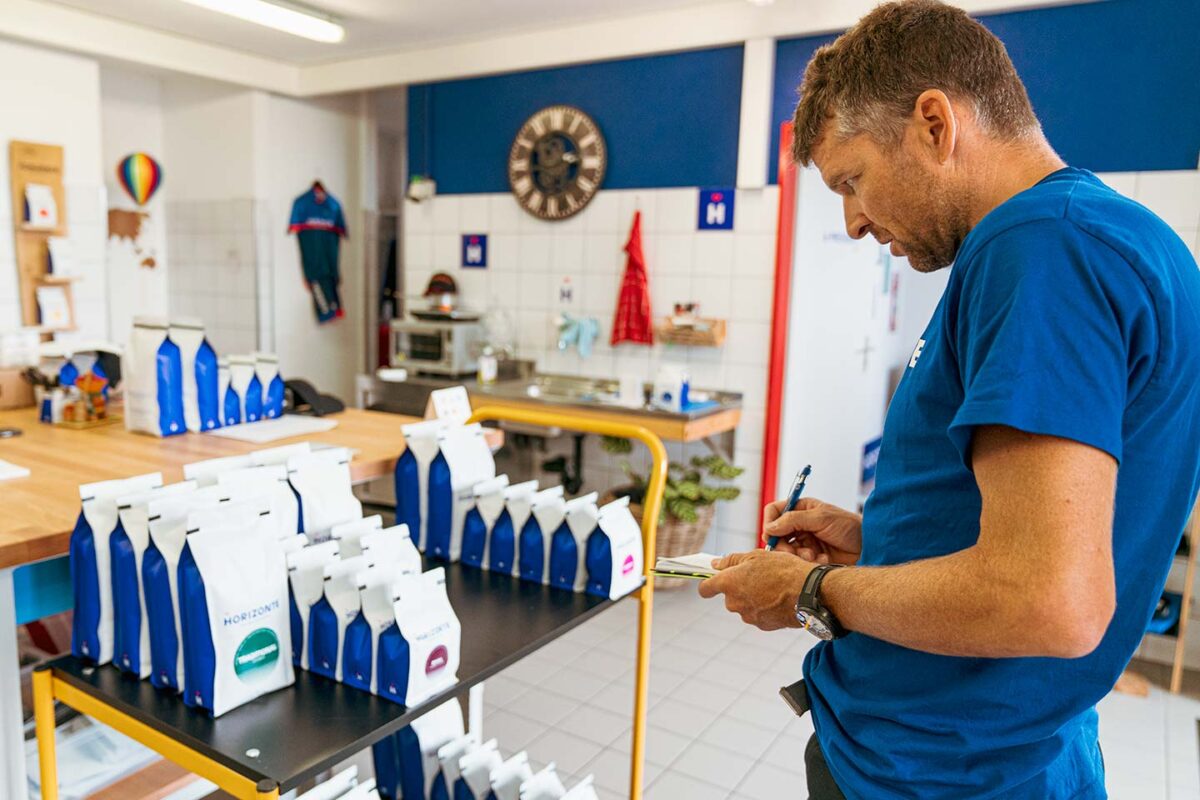
In the world of cycling, the line separating a win and a loss is clear-cut. It all comes down to who crosses the finish line first. In the world of coffee, however, sometimes you have to embrace the shades of gray between black and white. For Christoph, this ambiguity hasn’t been easy to adapt to, but at the same time, he says that’s exactly the beauty of his new adventure.
“This morning, I was having breakfast at the roastery and had some packages in front of me. They are good, but not perfect. But you have to accept that, too. The coffee world has a lot of room to play with. After all, that’s what makes it interesting.”
Text: Tatsuya Nakamichi
Photos: Anthony Leutenegger @anthonyleutenegger

MY FAVORITE COFFEE人生を豊かにする「私の一杯」
My favorite coffee is the first one in the morning. It's special. I wake up, work on my computer at home, come to the roastery and have the first cup in peace. Just by myself. It's kind of like my mini-meditation. Sometimes our four-and-a-half-year old boy also comes along, and I make him hot chocolate. And that's how we start our day, him sipping his drink and me having my flat white by his side.

このロースターのコーヒー豆を購入する
HORIZONTE COFFEE ROASTERS
- [営業時間]
- Mon-Fri: 10:00-17:30